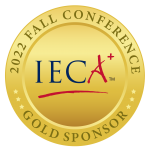COVID-19 President Update March 16
Good Afternoon,
Yesterday Governor Baker announced that all public & private schools must close tentatively until April 7th to curb the spread of COVID-19 . As a result, Cardinal Cushing Centers will be closing all day programs – South Shore Industries, Life Opportunities Unlimited, St. Coletta Day School and Cardinal Cushing School’s day program in Hanover as of March 18th through April 7th.
Effective immediately:
- Families that take their loved one home for a visit will be required to keep them home through the state wide shut down period, currently April 7, 2020. This is to limit the spread of the illness.
- Any on site family visits will be limited to one family member at a time and will occur outside of the home in a prearranged location to practice good social distancing and prevent an abundance of people. Please work with Residential Management to coordinate these visits
- Residential school families requiring materials/medications from the health center will need to follow the following protocols:
o Please contact the Hanover Nursing Department to arrange a pick up date and time at 781- 829-1275
o Once on campus, please park in a spot adjacent to the Health Center and call to let them know you have arrived
o Remain with your vehicle and a Cushing staff will bring medications/materials out
The decision to close day programs was not easy for our team. We know that these disruptions in routines can be incredibly challenging to those we support. Our teams have put together some wonderful social stories that can found on our website. In addition to the social stories, Bridget Lally, our Clinical Director at the Hanover School wanted to also provide some resources to our community on how to respond to questions and conversation in regards to COVID-19. While these are geared towards children, they are helpful for us all!
Bridget recommends that everyone take a quick glance at the Response to Anxiety Visual as it can be helpful reminders for all in our community as the news, information and happenings causes lots of stirrings of emotions in all. In the midst of all that is happening, the clinicians are available for support and resources to staff, students and the families as emotions are stirring. In moments like this, there are heightened concerns for the mental health and well-being of all involved and so it is important to remember self-care and paying attention to your emotions as you are also responding to the needs around you. Please do not hesitate to reach out to the clinical team with more specific questions or concerns that arise and the need for emotional support.
Attached are a few resources as well as some highlighted “talking tips” below from CDC:
Helpful Hints when talking with the Individuals that we serve about COVID-19:
Remain calm and reassuring. Validate the feelings they are expressing in the moment. Ex: “It is confusing.” or “It is okay to be nervous.”
- Remember that children will react to both what you say and how you say it. They will pick up cues from the conversations you have with them and with others.
Make yourself available to listen and to talk.
- Make time to talk. Be sure children know they can come to you when they have questions.
Avoid language that might blame others and lead to stigma
- Remember that viruses can make anyone sick, regardless of a person’s race or ethnicity. Avoid making assumptions about who might have COVID-19.
Pay attention to what children see or hear on television, radio, or online.
- Consider reducing the amount of screen time focused on COVID-19. Too much information on one topic can lead to anxiety.
Provide information that is honest and accurate.
- Give children information that is truthful and appropriate for the age and developmental level of the child.
- Talk to children about how some stories on COVID-19 on the Internet and social media may be based on rumors and inaccurate information.
Teach children everyday actions to reduce the spread of germs.
- Remind children to stay away from people who are coughing or sneezing or sick.
- Remind them to cough or sneeze into a tissue or their elbow, then throw the tissue into the trash.
- Discuss any new actions that may be taken at school to help protect children and school staff.
(e.g., increased handwashing, cancellation of events or activities) - Get children into a handwashing habit.
- Teach them to wash their hands with soap and water for at least 20 seconds, especially after blowing their nose, coughing, or sneezing; going to the bathroom; and before eating or preparing food.
We will continue to keep all of you informed in the days ahead. Thank you again for your continued support.
Be Well,,
Michelle Markowitz
Interim President & CEO



